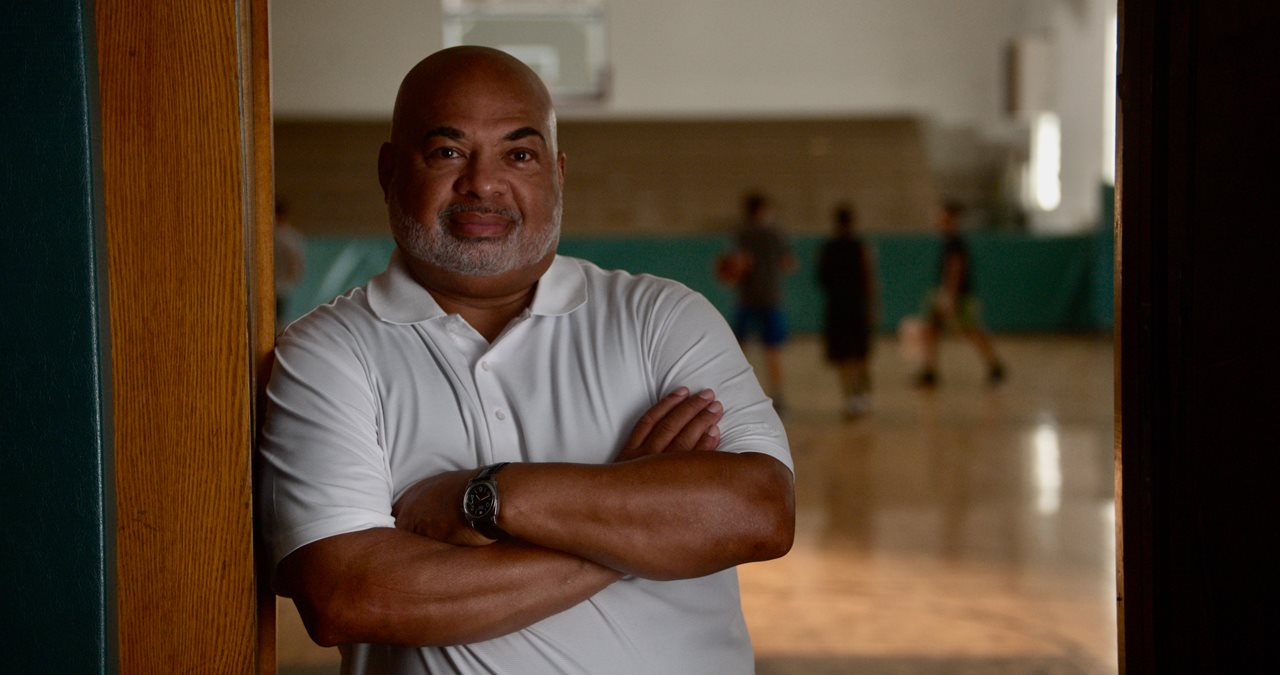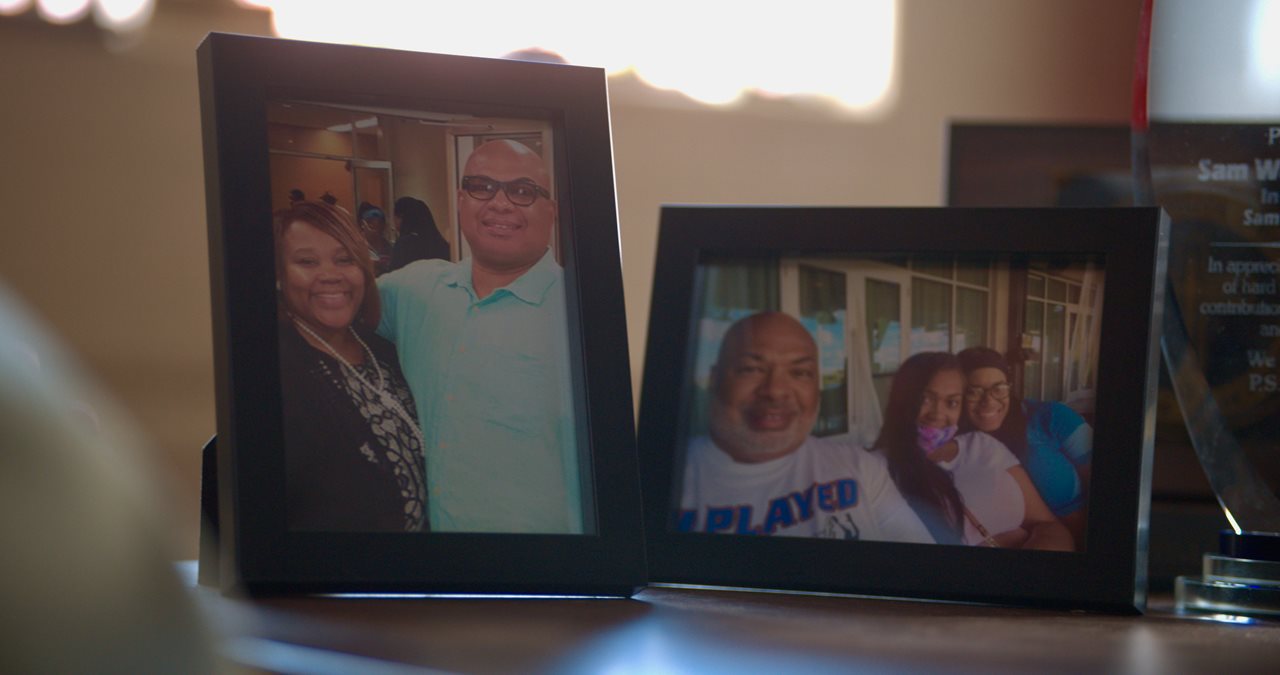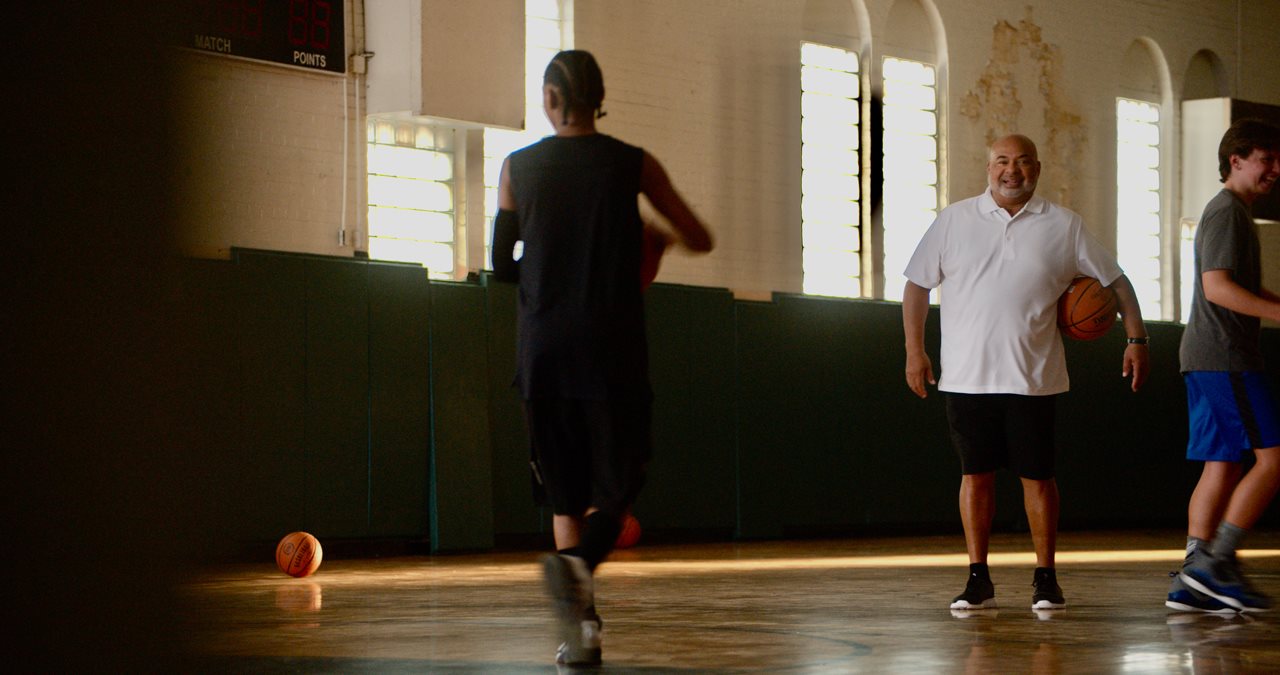Psoriasis and the winter months: How one patient found relief to enjoy the holiday season
February 11, 2022
(BPT) – Sponsored by Eli Lilly and Company
The winter season is a special time of year. Many look forward to spending time with family and friends, sipping hot cocoa or getting cozy by the fire. Unfortunately, however, this festive time of year can also be accompanied by stress and discomfort for someone living with chronic diseases. Nearly 125 million people globally live with psoriasis – an autoimmune disease impacting their skin. The most typical form of psoriasis is plaque psoriasis, which presents as raised, red patches covered with a silvery-white buildup of dead skin cells.
Sam is a husband, father, youth mentor and basketball coach, and he is one of the millions of people impacted by moderate-to-severe plaque psoriasis. For years, he experienced discomfort and everyday difficulties due to his skin plaques. Fortunately, Sam was able to find relief with Taltz® (ixekizumab) injection 80 mg/mL. Learn more about patients like Sam and their experience with Taltz.
Taltz is a prescription medicine for people 6 years of age and older with moderate to severe plaque psoriasis who may benefit from taking injections or pills (systemic therapy) or treatment using ultraviolet or UV light (phototherapy). Taltz affects the immune system. It may increase your risk of infections, which can be serious. Do not use Taltz if you have any symptoms of infection, unless your doctor tells you to. If you have a symptom after starting Taltz, call your doctor right away.

Think you might have plaque psoriasis? Understanding key signs and symptoms
Psoriasis is a chronic, immune disease that may begin in childhood or adulthood and occurs when the immune system is overactive. This leads new skin cells to grow too rapidly. The most typical result is red, scaly patches that develop on your body. For Sam, these symptoms began in his teens and gradually worsened. “When I was first diagnosed, it was in fairly small areas that were irritating and itchy, and as it progressed to cover more parts of the body, especially my legs and torso, I was devastated.”
The plaques on his skin made Sam’s job as a basketball coach challenging and uncomfortable, especially as areas such as his legs and arms were often exposed to teammates during practice. As the air became more dry in the winter, Sam’s itchiness and skin dryness often increased. “Continued scratching meant the scales were everywhere – in my bed after sleeping, in my socks, especially if I was wearing dark clothes. Sometimes they would be on my legs from the knees down or on my arms. When they were on my scalp, I looked like I had bad dandruff.”
Psoriasis in the winter months
The winter season is a time Sam enjoys spending with his loved ones. “I love the holidays! My mom used to bring our family together, and I’d like to think I’ve continued that tradition. There’s nothing like family, and we all love to spend time with each other. During the holidays, all of us – my siblings, our kids – get together to have dinner. It’s a nice tradition that we look forward to every year.”
However, as the cold weather arrived, Sam’s symptoms often worsened. According to the National Psoriasis Foundation (NPF), nearly half of people living with psoriasis rank the winter season as the most difficult time for their disease due to factors such as reduced sunlight exposure, lack of humidity and heightened stress levels around the holidays.
“In Michigan, it’s very dry in the wintertime. That’s mainly when it would result in flaky and patchy skin. It was very embarrassing.”

Sam leans on his family for support
While Sam cherishes seasonal activities with his loved ones, his plaque psoriasis impacted his desire to see family and friends around the holidays. “Family is more loving, but it still bothered me because I knew it was there. If it was visible and people could see it, it would make me feel self-conscious and embarrassed. Younger kids or siblings who didn’t understand would sometimes ask, ‘What’s up with Uncle Sam?’”
Sam described the impactful meaning of his family’s support and his desire to strengthen connections with his loved ones. “At the beginning, no one really understood what it was. My mom and my dad helped me. My dad used to say, ‘Don’t worry about what people think! It’s not contagious and you’re not going to hurt anyone. Have confidence in yourself.’ Now, my family doesn’t even remember I have it.”
Searching no more: Taltz (ixekizumab) helped Sam find relief
Sam was looking for a new treatment that could offer him a chance at completely clear skin. After his dermatologist recommended and started him on Taltz, an FDA-approved treatment for moderate-to-severe plaque psoriasis. After beginning treatment with Taltz, Sam quickly experienced symptom relief in the areas of his skin that were bothering him the most. “I started to see relief from Taltz quickly, and I am so happy with the results. I don’t see the traces of psoriasis that I used to. Now that I’m on Taltz, my skin is virtually clear.”
Since experiencing relief of his symptoms, Sam chooses clothing he previously struggled to wear and proudly enjoys coaching and mentoring his athletes. “I used to only grab for sweatpants and long sleeve shirts all the time because I was ashamed, and it was incredibly uncomfortable. It was stressful because it inhibited me from doing what I wanted to do. It’s so important to me to be able to show my legs and show some skin like basketball players do!”
With clear skin, he also looks forward to spending time with his family each holiday season. “Time flies and tomorrow isn’t promised, so over the years you never know who’s going to be with you. I really believe there’s nothing like family, and I love and cherish the time spent with my family.”

Ask your doctor about treatment options like Taltz
Sam recommends talking to your doctor about available treatment options, including Taltz, if you are looking for the possibility of complete skin clearance. “When I come across people with plaque psoriasis, I tell them that they should see their dermatologist,” said Sam.
Sam discovered Taltz TogetherTM, a program that provides assistance as you begin Taltz and offers resources throughout your treatment. The program aided Sam in navigating the approval process with his insurance company, and he suggests it to anyone who feels concerned about their treatment costs.
If you have moderate-to-severe plaque psoriasis, talk to your doctor about Taltz to see if it is the right treatment for you.
*This article represents Sam’s personal experiences. While Sam saw complete clearance with Taltz, individual results may vary. In clinical trials, at 12 weeks, up to 90 percent of people saw significant improvement of their psoriasis, and four out of ten people achieved completely clear skin.
Sam was compensated for his time.
PURPOSE AND SAFETY SUMMARY
Important Facts About Taltz® (tol-ts). It is a prescription medicine also known as ixekizumab.
Taltz is an injectable medicine used to treat:
- People 6 years of age and older with moderate to severe plaque psoriasis who may benefit from taking injections or pills (systemic therapy) or treatment using ultraviolet or UV light (phototherapy).
- Adults with active psoriatic arthritis.
- Adults with active ankylosing spondylitis.
- Adults with active non-radiographic axial spondyloarthritis with objective signs of inflammation.
It is not known if Taltz is safe and effective in children for conditions other than plaque psoriasis or in children under 6 years of age.
Warnings
- Taltz affects the immune system. It may increase your risk of infections, which can be serious. Do not use Taltz if you have any symptoms of infection, unless your doctor tells you to. If you have a symptom after starting Taltz, call your doctor right away.
- Your doctor should check you for tuberculosis (TB) before you start Taltz, and watch you closely for signs of TB during and after treatment with Taltz.
- If you have TB, or had it in the past, your doctor may treat you for it before you start Taltz.
- Do not use Taltz if you have had a serious allergic reaction to ixekizumab or any other ingredient in Taltz, such as: swelling of your eyelids, lips, mouth, tongue or throat, trouble breathing, feeling faint, throat or chest tightness, or skin rash. Get emergency help right away if you have any of these reactions. See the Medication Guide that comes with Taltz for a list of ingredients.
- Crohn’s disease or ulcerative colitis (inflammatory bowel disease) can start or get worse with Taltz use. Tell your doctor if you have any of these symptoms or if they get worse: stomach pain, diarrhea, and weight loss.
- You should not get live vaccines while taking Taltz. You should get the vaccines you need before you start Taltz.
Common side effects
The most common side effects of Taltz include:
|
|
|
|
Tell your doctor if you have any side effects. You can report side effects at 1-800-FDA-1088 or www.fda.gov/medwatch.
Before using
Before you use Taltz, review these questions with your doctor:
- Are you being treated for an infection?
- Do you have an infection that does not go away or keeps coming back?
- Do you have TB or have you been in close contact with someone with TB?
- Do you have possible symptoms of an infection such as fever, cough, sores, diarrhea, or other symptoms? Ask your doctor about other possible symptoms.
- Do you have Crohn’s disease or ulcerative colitis?
Tell your doctor if:
- You need any vaccines or have had one recently.
- You take prescription or over-the-counter medicines, vitamins, or herbal supplements.
- You are pregnant or planning to become pregnant. It is not known if Taltz can harm an unborn baby.
Pregnancy Registry: If you become pregnant while taking Taltz, you are encouraged to enroll in the pregnancy registry. The purpose of this registry is to collect information about the health of you and your baby. Talk to your healthcare provider or call 1-800-284-1695 to enroll in the registry.
- You are breastfeeding or planning to breastfeed. It is not known if Taltz passes into breastmilk.
How to take
See the instructions for use that come with Taltz. There you will find information about how to store, prepare, and inject Taltz. Adults may self-inject after receiving training from a healthcare provider.
For people under 18 years of age:
- Weighing less than 50 kg (i.e., 110 lb): Taltz must be given by a healthcare provider.
- Weighing more than 50 kg (i.e., 110 lb): If your healthcare provider decides that your caregiver may give your injections of Taltz at home, your caregiver should ask and receive training from a healthcare provider on the right way to prepare and inject Taltz.
Learn more
For more information, call 1-800-545-5979 or go to taltz.com.
This summary provides basic information about Taltz and is not comprehensive. Read the information that comes with your prescription each time your prescription is filled. This information does not take the place of talking with your doctor. Be sure to talk to your doctor or other healthcare provider about Taltz and how to take it. Your doctor is the best person to help you decide if Taltz is right for you.
IX CON BS 06JAN2022
PP-IX-US-5281 01/2022 ©Lilly USA, LLC 2022. All rights reserved.
Taltz Together™ is a trademark of Eli Lilly and Company.
Taltz® is a registered trademark owned or licensed by Eli Lilly and Company, its subsidiaries, or affiliates.































































































































































